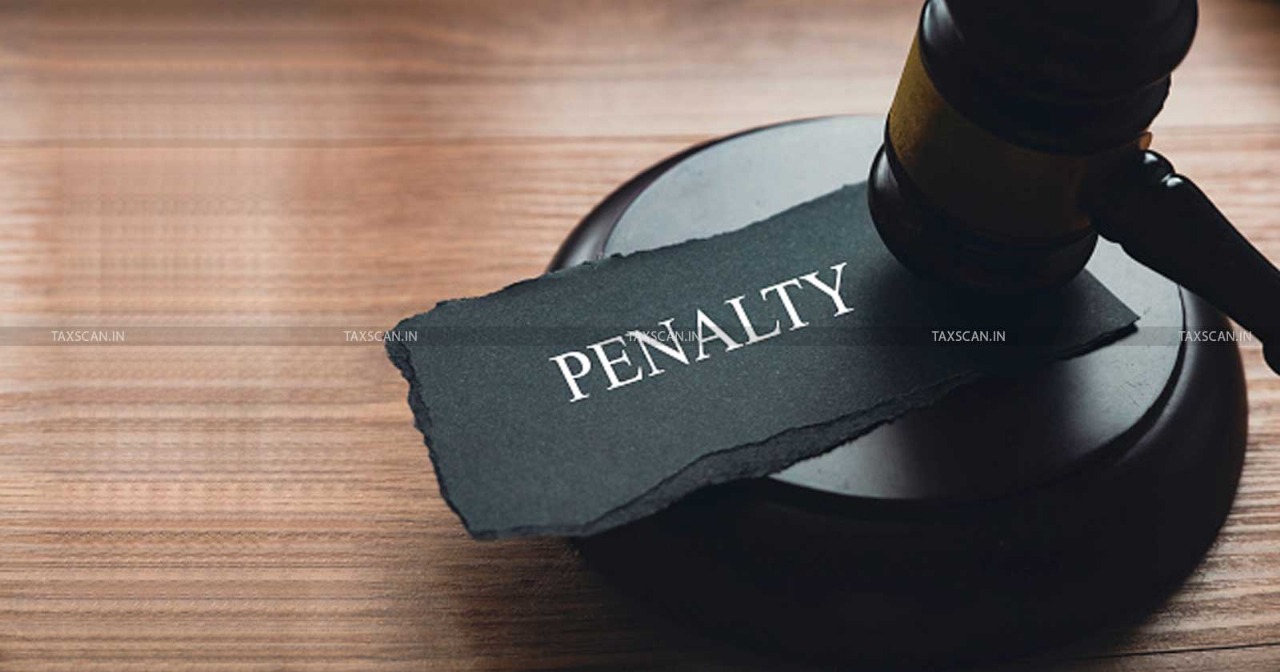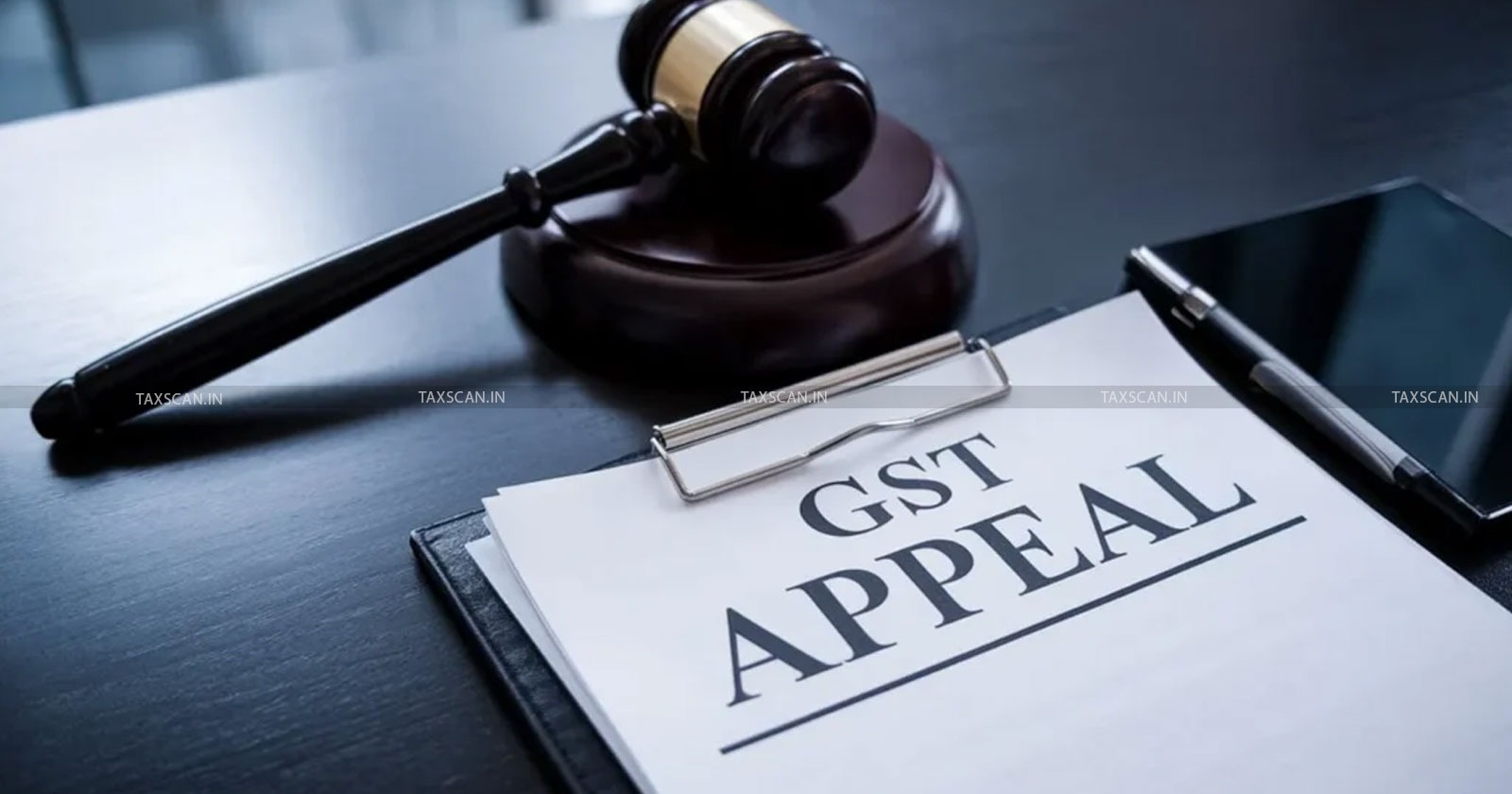Imposition of Penalty though GST Paid: Madras HC Dismisses Petition and Allows 15 Days to File Appeal Despite Lapse of Limitation [Read Order]
The High Court observed no merits in the case and proceeded to dismiss the writ petition, but provided a leeway for the petitioner to attempt relief from the appellate authority.
![Imposition of Penalty though GST Paid: Madras HC Dismisses Petition and Allows 15 Days to File Appeal Despite Lapse of Limitation [Read Order] Imposition of Penalty though GST Paid: Madras HC Dismisses Petition and Allows 15 Days to File Appeal Despite Lapse of Limitation [Read Order]](https://images.taxscan.in/h-upload/2025/07/09/2061821-penalty-hc-taxscan.webp)
The Madurai Bench of the Madras High Court was recently met with a case regarding the imposition of penalty on a petitioner who claimed to have paid the requisite Goods and Services Tax (GST) due.
The petitioner, M/s M R Pro Tech Private Limited (M R Pro Tech) questioned the imposition of penalty despite payment of GST for the period between March 2021 and October 2021 and sought to quash the impugned order passed by the Additional Commissioner of CGST and Central Excise.
 Also Read:Interest for Belated GST Payment: Madras HC Confirms Interest Levied u/s 50(1) of CGST/ TNGST Act [Read Order]
Also Read:Interest for Belated GST Payment: Madras HC Confirms Interest Levied u/s 50(1) of CGST/ TNGST Act [Read Order]
It was the case of the petitioner that in response to the notice in DRC-01 dated 7 February 2024, the requisite tax for the period in question had been paid before the order was passed.
It was the case of the petitioner that the authorities had wrongly imposed a penalty under Section 122(2)(a) read with Section 73(9), as well as under Section 125 of the GST Act, and contended that the impugned order was liable to be quashed.
Understanding Common Mode of Tax Evasion with Practical Scenarios, Click Here
The impugned order was passed on 6 December 2024 and reportedly uploaded on 8 January 2025. The petitioner had the liberty to file an appeal within the prescribed period of three months or the further condonable period of thirty days, as permitted under Section 107 of the GST Acts. Following the lapse of the condonable period, the petitioner opted to approach the High Court through this present writ petition.
 Also Read:Reduced Penalty u/s 78 of GST Applies If Tax and Interest Paid Within 30 Days of Demand Order: CESTAT Cuts Penalty to 25% [Read Order]
Also Read:Reduced Penalty u/s 78 of GST Applies If Tax and Interest Paid Within 30 Days of Demand Order: CESTAT Cuts Penalty to 25% [Read Order]
M R Pro Tech, represented by A. Satheesh Murugan prayed for liberty to challenge the order before the Appellate Commissioner, although the appeal would be time barred at this distance of time by a few days as the appeal would be filed beyond the condonable period of limitation under Section 107 of the GST Act.
However, R. Gowri Shankar, appearing for the Revenue argued that the writ petition was liable to be dismissed in view of the Supreme Court decision in Assistant Commissioner (CT), LTU, Kakinada and others vs. Glaxo Smith Kline Consumer Health Care Limited (2020) and the prayer would not be maintainable at this stage as stated in Singh Enterprises Vs CCE (2008).
Step by Step Guidance for Tax Audit & E-filing, Click Here
The bench of JusticeC. Saravanan, observed that there was no merit in the writ petition, especially as the petitioner had not exhausted the statutory remedy within the permitted time and proceeded to dismiss the petition.
 Also Read:Madras HC Allows to file GST Appeal Despite Missed Deadline and Rejected Rectification, Subject to Additional 10% Pre-deposit [Read Order]
Also Read:Madras HC Allows to file GST Appeal Despite Missed Deadline and Rejected Rectification, Subject to Additional 10% Pre-deposit [Read Order]
However, taking into account the petitioner’s request to pursue the alternate remedy by way of appeal, the Court exercised discretion and directed that if the petitioner filed an appeal before the Appellate Commissioner within fifteen days from the date of receipt of the present order and made the required pre-deposit, the appellate authority may entertain the same and adjudicate on merits.
Support our journalism by subscribing to Taxscanpremium. Follow us on Telegram for quick updates


